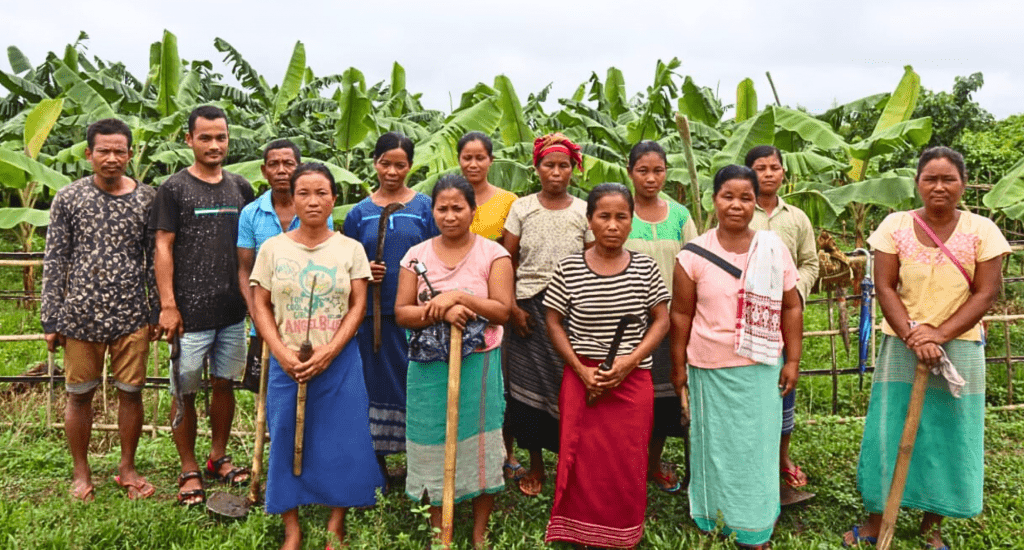Seven Sisters Development Assistance
Blogs
Farmers of Meghalaya: FOCUS on Sustainable Agriculture and Market Access –
–
The Government of Meghalaya initiated the Farmers’ Collectivization for Upscaling of Production and Marketing Systems (FOCUS) in July 2021, with the primary goal of boosting production, enhancing productivity, establishing credit linkages, and facilitating market access for farmers engaged in agricultural, livestock rearing, and related activities. To ensure comprehensive implementation of the program, the Meghalaya Basin Development Agency (MBMA), in collaboration with grassroots NGOs, is overseeing

and monitoring its execution. In this context, SeSTA (Seven Sisters Development Assistance) was selected as the leading Resource Institution, owing to its grassroots presence and ability to effectively implement the project. SeSTA has been actively involved in various intervention areas within Umling Block in Ri-bhoi district, Kharkutta, Resubelpara, Bajengdoba Block in North Garo Hills district, and Rerapara and Betasing Block in South West Garo Hills district of Meghalaya. Activities Under the FOCUS Project: SeSTA, through extensive field engagement, has undertaken a multitude of activities across six blocks in Meghalaya. Some of these activities include: Conducting village-level Awareness & Concept Seeding programs to form Producer Groups (PGs).
Assisting PGs in opening bank accounts and accessing FOCUS grant support for PG members. Providing training to PG members on bookkeeping and account management. Facilitating the collection of Grievances Redressal forms from PG members. Training and capacity building of Village Community Facilitators (VCF). Monitoring the utilization of funds allocated for various livelihood activities to enhance income. Documenting the collection for Management Information System (MIS) updating in the FOCUS Portal. Collecting individual account and job card numbers for FOCUS+ as funds are directly credited to PG members’ bank accounts. Offering training to PG members on different livelihood activities such as piggery, goatery, horticulture, value addition, etc. Ensuring efficient utilization of funds and documenting best practices and learnings from the field. Furthermore, financial support was extended to the PGs and selected Service Providers to undertake value chain-related activities. Each PG received funding equivalent to Rs. 5,000 per member. For example, if a PG had 15 members, a total of Rs. 75,000 was credited to that PG. SeSTA, as the Resource Institution, played a crucial role in facilitating the successful implementation of the program, while the financial support to producer groups was provided by MBMA.
